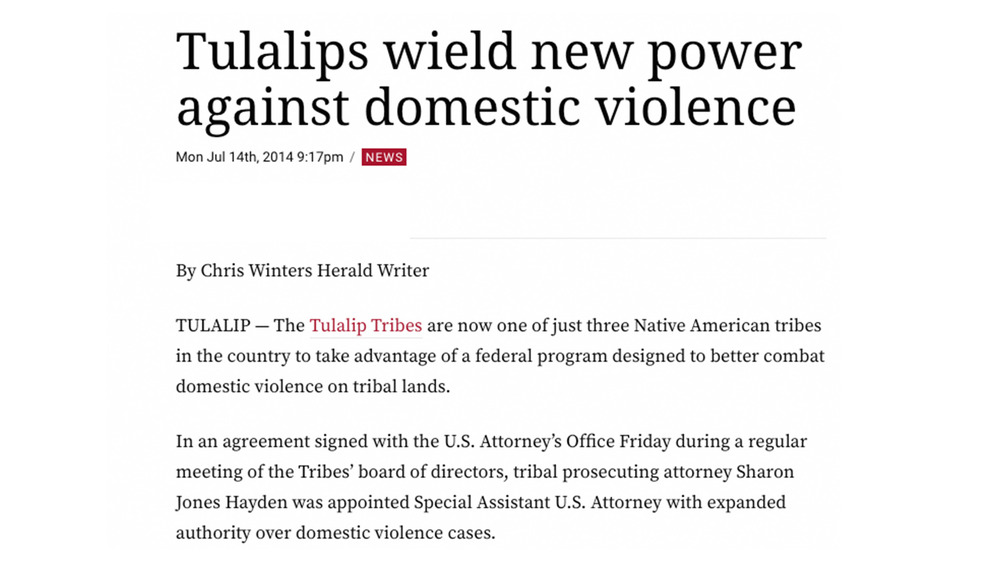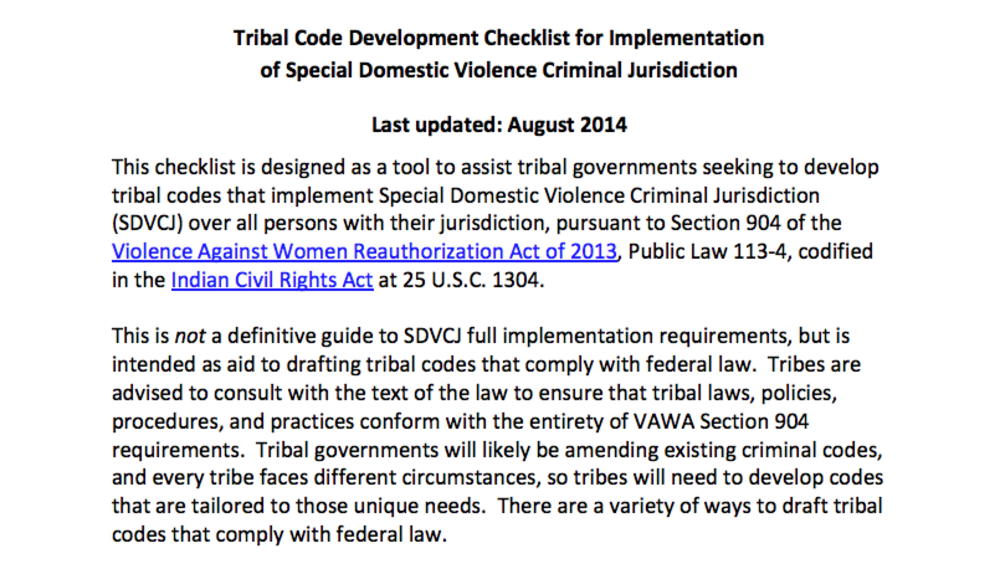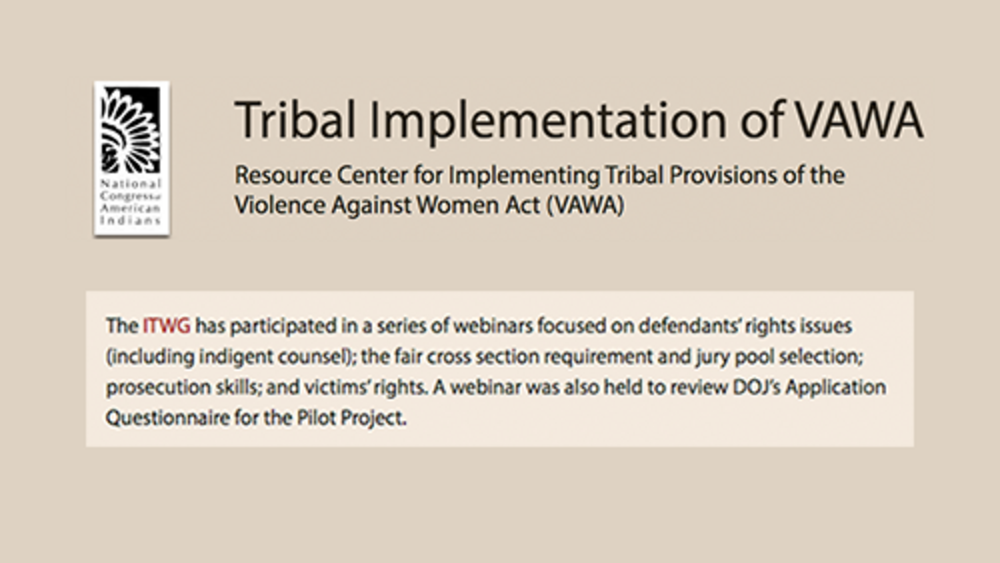In coordination with the Tribal Law and Policy Institute, NCAI hosting this webinar on April 5, 2013. In this webinar, panelists discussed the Violence Against Women Act (VAWA) provisions that expands tribal court jurisdiction over all persons for certain crimes committed on the reservation.
Additional Information
National Congress of American Indians. Implementing VAWA's Expanded Jurisdiction in Our Tribal Courts. National Congress of American Indians. Washington, D.C. April 5, 2013. Video. (https://www.youtube.com/watch?v=igUa0z8Lo7E, accessed July 21, 2023)



